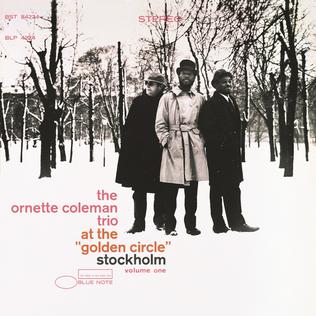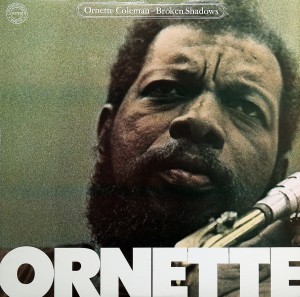
A musical ensemble, also known as a music group or musical group, is a group of people who perform instrumental and/or vocal music, with the ensemble typically known by a distinct name. Some music ensembles consist solely of instrumentalists, such as the jazz quartet or the orchestra. Other music ensembles consist solely of singers, such as choirs and doo wop groups. In both popular music and classical music, there are ensembles in which both instrumentalists and singers perform, such as the rock band or the Baroque chamber group for basso continuo and one or more singers. In classical music, trios or quartets either blend the sounds of musical instrument families or group together instruments from the same instrument family, such as string ensembles or wind ensembles. Some ensembles blend the sounds of a variety of instrument families, such as the orchestra, which uses a string section, brass instruments, woodwinds and percussion instruments, or the concert band, which uses brass, woodwinds and percussion.

Randolph Denard Ornette Coleman was an American jazz saxophonist, trumpeter, violinist, and composer. He was best known as a principal founder of the free jazz genre, a term derived from his 1960 album Free Jazz: A Collective Improvisation. His pioneering works often abandoned the harmony-based composition, tonality, chord changes, and fixed rhythm found in earlier jazz idioms. Instead, Coleman emphasized an experimental approach to improvisation, rooted in ensemble playing and blues phrasing. AllMusic called him "one of the most beloved and polarizing figures in jazz history," noting that while "now celebrated as a fearless innovator and a genius, he was initially regarded by peers and critics as rebellious, disruptive, and even a fraud."

Charles Edward Haden was an American jazz double bass player, bandleader, composer and educator whose career spanned more than 50 years. Building on the work of his predecessor bassists Jimmy Blanton and Charles Mingus, Haden revolutionized the harmonic concept of bass playing in jazz, evolving a way of playing that sometimes complemented the soloist, and sometimes moved independently, to help liberate bass players from a strictly accompanying role, to becoming more direct participants in group improvisation.

Leroy Jenkins was an American composer and violinist/violist.
Alvin Derald Etler was an American composer and oboist.

Brian Cherney is a Canadian composer currently residing in Montreal, Quebec.

In All Languages is a 1987 double album by Ornette Coleman. Coleman and the other members of his 1950s quartet, trumpeter Don Cherry, bassist Charlie Haden, and drummer Billy Higgins, performed on one of the two records, while his electrified ensemble, Prime Time, performed on the other. Many of the songs on In All Languages had two renditions, one by each group.

Free Jazz: A Collective Improvisation is the sixth album by jazz saxophonist and composer Ornette Coleman, released on Atlantic Records in September 1961: the fourth of Coleman's six albums for the label. Its title named the then-nascent free jazz movement. The recording session took place on December 21, 1960, at A&R Studios in New York City. The sole outtake from the album session, "First Take," was later released on the 1971 compilation Twins and subsequent CD reissues of Free Jazz.

Sound Grammar is a live album by jazz saxophonist and composer Ornette Coleman, recorded live in Ludwigshafen, Germany, on 14 October 2005. The album was produced by Coleman and Michaela Deiss, and released on Coleman's new Sound Grammar label. It was his first new album in almost a decade, since the end of his relationship with Verve in the 1990s. It features a mix of new and old originals.

At the "Golden Circle" Stockholm is an avant-garde jazz live album in two volumes by the Ornette Coleman Trio, documenting concerts on the nights of December 3 and 4, 1965, at the Gyllene Cirkeln jazz club in Stockholm. Both volumes were released in early 1966. This marked the beginning of Coleman's contract with Blue Note after he left Atlantic Records. It also debuted Coleman’s usage of the trumpet and violin, instruments in which he took three years teaching himself to play after leaving Atlantic.

The Empty Foxhole is an album by the American jazz saxophonist and composer Ornette Coleman that was released on the Blue Note label in 1966. The album features Coleman's untutored violin and trumpet as well as performing on his usual instrument, the alto saxophone, and marks the recording debut of his drummer son Denardo Coleman, who was ten years of age at the time. The album cover features Coleman's own artwork.
Roger John Goeb was an American composer.

Prime Design/Time Design is a live album written by the American jazz composer Ornette Coleman and recorded by a string quartet, with Ornette's son Denardo Coleman on drums, at the Caravan of Dreams in 1985 and released on the Caravan of Dreams label. The composition is dedicated to Coleman's "best hero," Buckminster Fuller, and is an interpretation of Fuller's "vision of the birth of the universe, the fusion of chaos and harmony".

Colors: Live from Leipzig is a live album by the American jazz composer and saxophonist Ornette Coleman and German pianist Joachim Kühn recorded in 1996 and released on the Harmolodic/Verve label.

Science Fiction is an album by the American jazz saxophonist and composer Ornette Coleman, recorded in 1971 and released on the Columbia label.

Broken Shadows is an album by the American jazz saxophonist and composer Ornette Coleman recorded in 1971, at the same sessions that produced Science Fiction, but not released on the Columbia label until 1982.
Valerie Coleman is an American composer and flutist as well as the creator of the wind quintet Imani Winds. Coleman is a distinguished artist of the century who was named Performance Today's 2020 Classical Woman of the year and was listed as “one of the Top 35 Women Composers” in the Washington Post. In 2019, Coleman's orchestral work, Umoja, Anthem for Unity, was commissioned and premiered by the Philadelphia Orchestra. Coleman's Umoja is the first classical work by a living African American woman that the Philadelphia Orchestra has performed.

An Evening with Ornette Coleman is a live album by Ornette Coleman. It was recorded in August 1965 at Fairfield Halls in Croydon, London, and was initially released by Polydor International in 1967. The album opens with a recording of a wind quintet by Coleman performed by London's Virtuoso Ensemble, followed by trio performances featuring Coleman on alto saxophone, violin, and trumpet, accompanied by bassist David Izenzon and drummer Charles Moffett.

Live in Paris 1971 is a live album by Ornette Coleman. It was recorded in November 1971 in Paris, and was released by Jazz Row in 2007. On the album, which was recorded one day before The Belgrade Concert, Coleman is joined by saxophonist Dewey Redman, bassist Charlie Haden, and drummer Ed Blackwell.

The Love Revolution: Complete 1968 Italian Tour is a two-CD live album by the Ornette Coleman Quartet. Three tracks were recorded on February 5, 1968, in Milan, Italy, while the remaining four tracks were recorded on February 8, 1968, in Rome. The album was released in 2005 by Gambit Records, and was reissued in 2015 by Solar Records. The quartet format is unusual in that it features Coleman with two bassists, Charlie Haden and David Izenzon, along with drummer Ed Blackwell. On the Milan tracks, Coleman is heard on alto saxophone, while on the Rome tracks, he also plays trumpet and, on a track titled "Buddha Blues," shehnai.

















